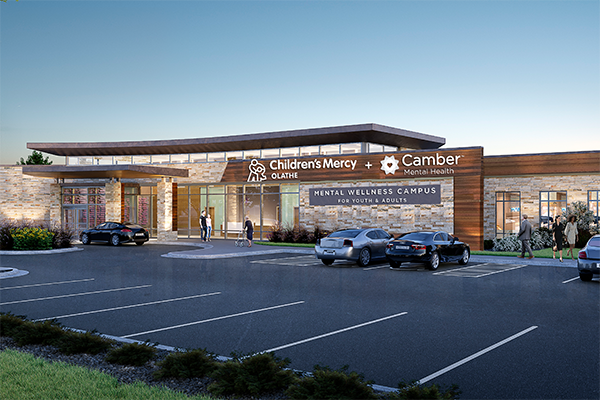- Locations
- How We Help
Overview
As the regional leader in youth mental health treatment, our innovative services help youth achieve health and wellness.
Treatment Programs
- Admissions
Overview
Learn how to admit your child to a Camber treatment location or make a client referral.
- Youth Disorders
- Resources
Overview
Our free resources help you stay informed and educated about mental health, brain development, and childhood trauma as well as how Camber is working toward building healthier communities.
- About Us
Overview
Our philosophy is to provide collaborative, compassionate and effective care through the use of timely, individualized treatment planning.
Learn More About Us
Mental Health Treatment Overview
Camber Children’s Mental Health provides compassionate treatment at our inpatient hospitals and residential treatment centers for youth ages 6 to 18 who are experiencing mental health challenges. As an industry leader in mental health treatment, we provide an array of innovative programs to help youth achieve mental health wellness through psychiatric, medical, therapeutic, and educational services as well as emotion regulation and social skills development.
Treatment Overview
Whether a child is receiving inpatient or residential treatment, they will receive the following:
- Full medical, clinical and nursing assessment
- Psychiatric evaluation and medication management (if medication is needed)
- Care coordination
- Support and supervision from our trained nursing staff
- Innovative treatment and education to teach youth about their brains and how to regulate their emotions
- Individual, family and group therapy sessions
-
Individual therapy: Our licensed therapists help youth identify and understand their challenges, and learn new skills to deal with stress.
-
Family therapy: As a vital aspect of treatment, therapists help your family improve communication, enhance your family’s ability to help your child, and provide a better understanding of mental health issues and behavioral concerns.
-
Group therapy: In traditional or expressive therapy sessions like art, music or recreation, our therapists work with a group of clients to improve social skills, enhance coping skills and strengthen communication.
-
What’s the Difference Between Inpatient and Residential Treatment?
Our team is expertly trained in helping families navigate the treatment process, including identifying the type of treatment that can best support each child. Call our Admissions department at (913) 890-7468 to discuss your child’s specific needs so we can help you determine the best next steps in their care. Below is a quick summary of the main differences between treatment at a Camber inpatient hospital and a Camber residential treatment center.
Inpatient Hospitalization
- A youth entering this level of treatment is in an active emergency. For example, they may be self-harming, have a plan to attempt suicide, or are at risk of harming someone else.
- The goal is to stabilize the crisis so the child can discharge to a lower level of care as soon as safely possible.
- Youth don’t attend school so they can fully focus on treatment and healing.
- A child’s guardian can call us directly to admit their child or a referral can be made by a primary physician, community mental health center, school counselor, hospital emergency department, case manager, or another person involved in a child’s wellbeing. Guardian consent is always required for admission.
- Treatment has an average length of stay of four to seven days.
Residential Treatment
- A youth entering this level of treatment is not in an active emergency. They are having ongoing struggles managing their symptoms and haven’t experienced improvement with outpatient services.
- The goal is to provide long-term intensive clinical services where they can practice skills for coping and emotion regulation.
- Youth attend school onsite at Camber Academy while receiving treatment.
- Admission typically begins with a referral from the child’s insurance company or community mental health center. Sometimes there is a waitlist for residential treatment in Kansas and a child is added to the waitlist until a bed becomes available. Guardian consent is always required for admission.
- Treatment has an average length of stay of 60 to 90 days.
Treatment Goals
 Treatment goals are always individualized to meet the unique needs of each client and typically include:
Treatment goals are always individualized to meet the unique needs of each client and typically include:
- Identify and resolve the immediate crisis leading to aggressive and/or self-destructive behaviors
- Identify and strengthen resources to support healthy development and ongoing safe behavior
- Improve emotion regulation, communication and conflict resolution skills
- Organize services and community resources to support a timely discharge to a less restrictive environment
Treatment Reviews
Our treatment teams collaborate with the youth, their families, and community members to guarantee a safe and well-planned discharge. We are also committed to identifying continuing aftercare services to help cultivate the successful reintegration of children into their homes and the long-term wellness of the family system.






